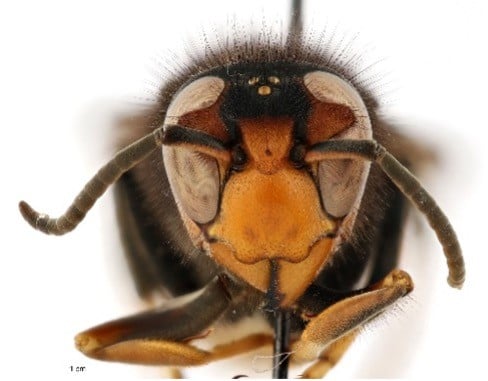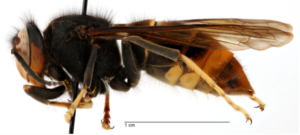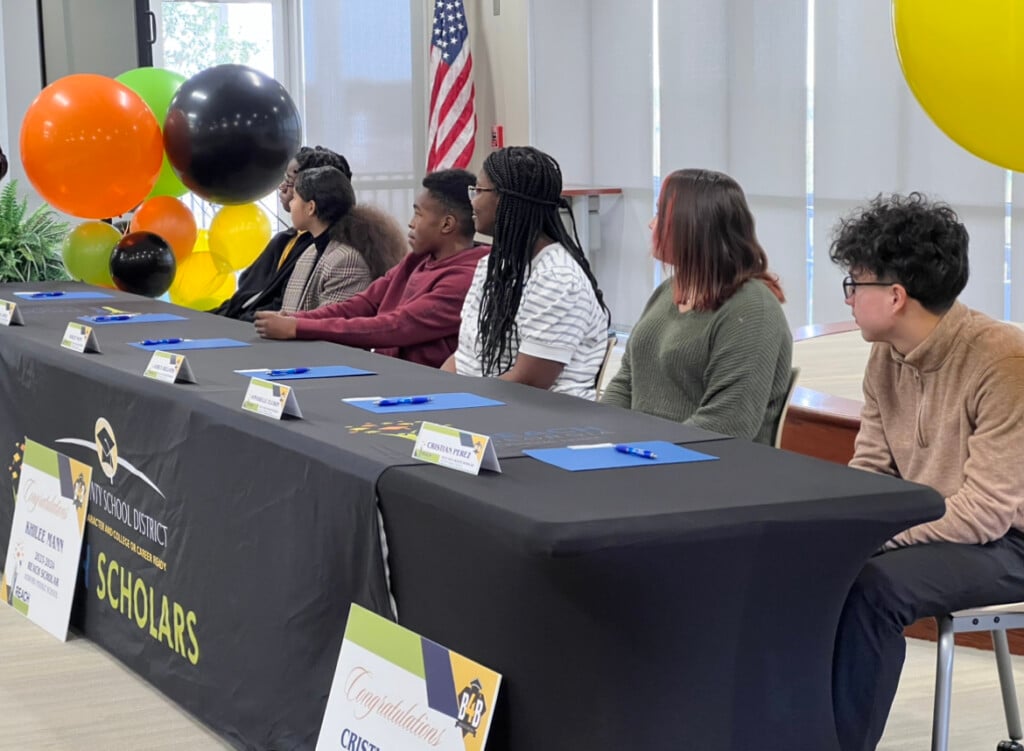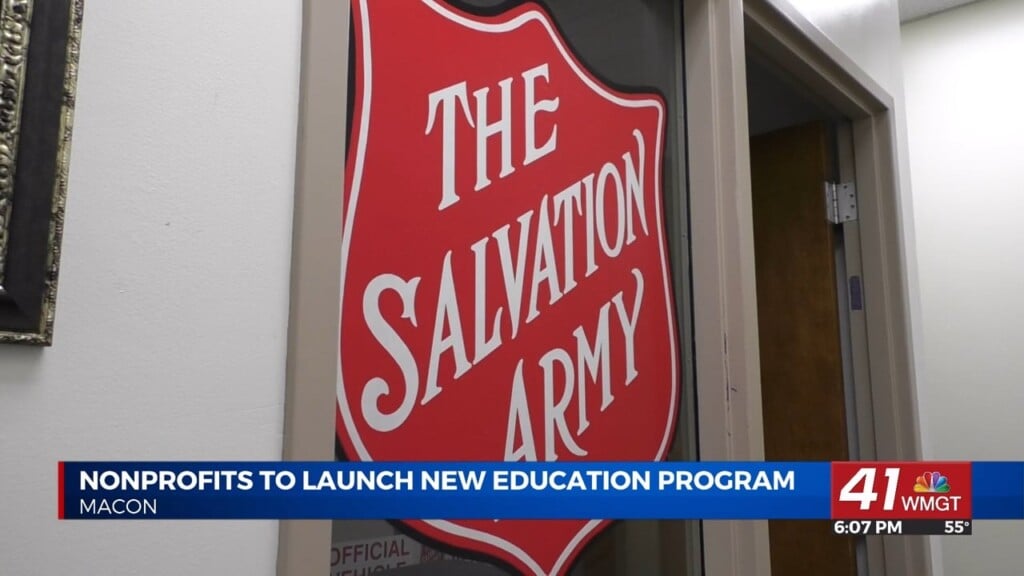First live yellow-legged hornet confirmed in Georgia sparks concerns

ATLANTA, Georgia (41NBC/WMGT)- A significant discovery has taken place in Georgia as the Georgia Department of Agriculture (GDA) joined forces with the USDA and the University of Georgia to confirm the detection of a live yellow-legged hornet within the state for the very first time. This also marks the first time a living yellow-legged hornet was detected in the United States. The GDA is reaching out to the public, urging them to report any sightings of this non-native hornet species. If left unchecked, the hornets could potentially pose a threat to honey production, indigenous pollinators, and the agricultural industry, which ranks as the state’s leading sector.
Earlier this month, a beekeeper in Savannah made the discovery on his property – an unfamiliar hornet. The beekeeper triggered a series of investigations. On August 9, 2023, the United States Department of Agriculture’s Animal and Plant Health Inspection Service (APHIS) validated the identification of the insect as a yellow-legged hornet (YLH; Vespa velutina) made by the University of Georgia (UGA).
 Agriculture Commissioner Tyler Harper expressed his gratitude to all those involved in identifying the unwelcome non-native pest. He emphasized the crucial role that the people of Georgia play in aiding the GDA in detecting unwanted pests. “Georgians play an important role helping GDA identify unwanted, non-native pests, and I want to thank the beekeeper who reported his sighting to us, as well as our partners at the University of Georgia and USDA’s Animal & Plant Health Inspection Service for working swiftly to confirm its identity,” said Agriculture Commissioner Tyler Harper.
Agriculture Commissioner Tyler Harper expressed his gratitude to all those involved in identifying the unwelcome non-native pest. He emphasized the crucial role that the people of Georgia play in aiding the GDA in detecting unwanted pests. “Georgians play an important role helping GDA identify unwanted, non-native pests, and I want to thank the beekeeper who reported his sighting to us, as well as our partners at the University of Georgia and USDA’s Animal & Plant Health Inspection Service for working swiftly to confirm its identity,” said Agriculture Commissioner Tyler Harper.
Characterized as a social wasp species, the yellow-legged hornet constructs egg-shaped paper nests above ground, frequently within trees. These nests can expand significantly, accommodating approximately 6,000 workers on average. Native to tropical and subtropical regions of Southeast Asia, the yellow-legged hornet has already established itself in numerous parts of Europe, some regions of the Middle East, and certain non-native areas of Asia.
This recent discovery has prompted a focused effort to contain and eliminate the yellow-legged hornet, safeguarding Georgia’s agricultural interests and the local ecosystem.
More from Georgia Department of Agriculture:
GDA’s website has been updated with additional information regarding the yellow-legged hornet and an easily accessible form to report potential sightings. This information is prominently displayed on the homepage of the website. Georgians with additional questions or concerns are encouraged to email us at yellow.legged.hornet@agr.georgia.gov.
Here is what to include with your report, if possible:
- Your name and contact information.
- The location of the sighting.
- Date of sighting.
- If you can, safely take photograph(s) of the hornet (we generally can only confirm a report with a photo or specimen).
- Location and approximate height of the nest if found (Is it in a tree? Approximately how high is the nest?).
- If you have no photo, please include a description of the size of the insect, the color of the head and body, and what it was doing.
- Description of the hive loss/damage (if no photo is available).
- The direction the hornet(s) flew when flying away.
Please note: There are many domestic lookalikes that are native to the United States and do not pose a threat to honeybees. Many of them are valuable pollinators. USDA has a photo gallery of lookalikes. To get to the gallery, go to www.aphis.usda.gov, and search for “yellow-legged hornet.”
If you believe you saw a yellow-legged hornet in another state or province, please report it to the Department of Agriculture for that state or province.



